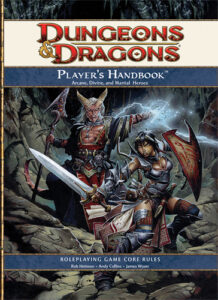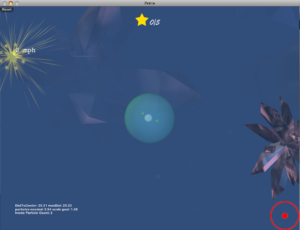[This post is cross-posted from over at the Culture Digitally site.]
This one has been brewing for a while. Perhaps, as Stephen Totilo notes, ever since Raph Koster voiced his concerns back in 2006. I believe that there is a storm coming between “game people” and educators, precisely at a moment when money is flooding into these realms. So, perhaps, that is reason enough for a storm. But the foundations for a battle have been laid. My concerns, as a participant and researcher, are really fourfold:
- Technological Determinism
- Obsession with Literalism
- Obsession with “Content” Delivery
- Epistemic Disinterest in Game Design/Development
I wasn’t able to attend G4C or GLS this year, unfortunately due to classes/research/budgets/life/etc, so some of what I have to say addresses second-hand accounts of those events. At the same time, however, I think there is growing awareness and concern about the intersection of games/game design/education that I have been thinking deeply about for the last two and a half years that echos the concerns of others.
The first concern I have is kind of banal. That much of the conversation is rooted in a kind of technological determinism. “Games will make crappy educational practices better.” I think all of us working in this area know that the issue is much broader than this. That there is the entire context of education that needs to be examined in addition to making educational materials more interesting/engaging/fill-in-the-blank.
The second critique is more subtle, and I was particularly sad to miss Eric Zimmerman’s GLS keynote entitled, “GAMES ARE NOT GOOD FOR YOU.” One element in particular that I struggle with and clearly Eric does as well, is that many people currently interested in games are obsessed with a kind of topical literalism. If the area of interest is diabetes, then the game should be about diabetes. If its about energy management, it needs to be about energy management. My experience has shown that this leads immediately to players, “looks like education, smells like education, not interested.” The line that I’ve used time and again in my work is, “lets make a game about X, without making a game about X.”
Unfortunately, actually doing that well is a difficult and collaborative process. Thus, the next response becomes turning to commercial games and leveraging them into curriculum. Portal, WoW, Civilization, then become our answer. Except that I’d argue that is the equivalent to giving up.
I’m not saying that Portal, WoW, Civ, etc aren’t educational. Or that they can’t compel people to learn in really important ways. Clearly, they can. I am saying that they’re only going to address a very small aspect of what its important for people to learn in school.
More specifically I wonder about the epistemic divide that exists between these communities. A game designer would never dream of putting a quiz into a game, but examine any number of “edutainment” titles or educational games made (often with government support) and often times you’ll be asked to complete a quiz prior to then playing some game like Tetris or Asteroids with an educational venir slapped on top. Which isn’t to say that quizzes can’t be a legitimate game mechanic, I think they can be, but they ought not be your go-to one.
The other option is to really not even make a game, but make something that looks enough like a game that you can get players to pay attention long enough to get your point across. This is really about content delivery. Consume content we have identified as good for you until you realize what we’re doing. This is third criticism, which is why so many educational “games” actually look like workbooks or interactive encyclopedias, sometimes with interactive elements, but little of what game players would recognize as a game or actually call a game. Yet, content delivery is much of what school has turned into.
However, policing the word “game” is problematic, especially when you consider the fraught ground between “casual” and “hardcore” distinction. Yet, the ability to judge something as “not a game” speaks to the issue of epistemic authority, which largely remains in the educational camp currently. Game developers tools and perhaps visual appeal are being leveraged, but does that make it a game?
A good game designer can assess the player at any moment. Do you know how this is game is working? No? Dead, or restart, or try again. It happens all the time in game play. Failure is used to help a player come to understand what they do and their relationship with the game. A game designer can construct a situation where they know the player knows/understands something, otherwise they would not be there. This is a fundamentally different kind of “knowing” than most educators recognize and as such it is discounted. That would explain the, “newcomers exploring a thing they don’t yet grasp.”
The funding for games and education, however, remains rooted in an epistemic community that understands knowing only through traditional testing and is quite disinterested in actually coming to understand what game design means or what the epistemic context of that community actually looks like. It is for reasons like this that I have serious concerns about the future of games that are educational. There remains a tendency to fall back or defer to educators, who clearly haven’t realized that their perspective on knowing isn’t actually working all that well.
Which is where we come back to my recent work, where I’ve taken up the role of the game designer, in a context where educational software (and some games) are being developed. It has become ever more important for me to fight for a kind of game design epistemology that can speak authoritatively. It has also become important to police boundaries in ways that, as a researcher I find not totally unproblematic. “No, that is not a game.” “No, we can’t have a quiz.” “Why does it have to be in the body?”
More and more it seems to be a clash of world views, except for the fact that game designers could ultimately care less. There are some that are committed to making games (that just happen to be educational), but games are the thing being sought and their production ought to be treated more respectfully than some simple technology to be thrown at broader social problems.
Good serious game design is really hard because it is a bridging of these worlds that requires a commitment to both on the part of both sides.


